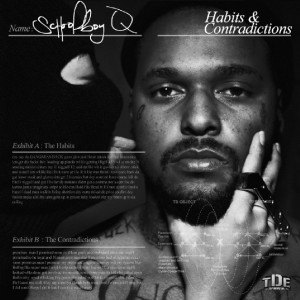
40.
Schoolboy Q
Habits & Contradictions
[Top Dawg Ent.]
Here lies one of the most aptly titled records of the year, the only way it could prove more fitting were an addendum of ‘& Confounded Expectations’ to be added – maybe one for the expanded reissue, eh? But the moniker doesn’t encapsulate the music within so much as the wider context, and it makes summarisation a tad tricky. For starters, the album dropped during the post-festive January lull, a marked contrast from the dark subject matter within, much derived from his affiliations with the Crips; however, Q approaches even the most grizzled gangland tropes in a casual manner, peppering his lyrics with humorous non-sequiturs and sharp wordplay, although he’s too world-weary to be lighthearted. The album is packed full of violence and misogyny, but he neither embellishes this with an absurdist streak a la Danny Brown nor questions the negative implications of his actions, as Black Hippy affiliate Kendrick Lamar does; it’s not until the redemptive penultimate track “Blessed,” aptly featuring Kendrick, that we really have any moral anchor to cling onto. As goes “Raymond 1969,” perhaps it really is all about “money-money, hoes, clothes,” but even then that hook is sung over a flipped Portishead sample. Fortunately the on-point production provides a steady hand on the wheel, inviting repeat listens that may prove crucial for some; as for me, I was hooked by the second track. As strong a rap debut as you’ll find all year.
– Gabriel Szatan

39.
Lambchop
Mr. M
[Merge / City Slang]
It seems difficult to separate the circumstances surrounding the inspiration for Mr. M, that being the death of Athens, GA musician Vic Chesnutt, and the music itself. One informs the other to large degree. And maybe that’s as it should be. The band had been close friends with Chesnutt for years and even backed him on his seminal album The Salesman and Bernadette. And as much as the music that spreads itself across this album feels burdened with a pronounced feeling of loss and regret, there is also a hard-won sense of comfort and gratitude. As much as any album can, Mr. M shows the band working through their grief and sadness—albeit with singer Kurt Wagner’s still inimitable sardonic lyricism—and managing some sense of resolution in the process. Tracks like the stunning opener “If Not I’ll Just Die” and crooner-ish “2B2” combine lounge strings with a pristine sense of pop orchestration. The shuffling gait of many of these songs belies their power and predisposition towards catharsis, but Wagner never stands still long enough to ever sound artificially affective. Mr. M may have its roots in loss but the band finds an emotional release through the celebrated life of their friend.
– Joshua Pickard
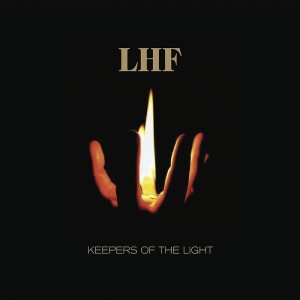
38.
LHF
Keepers Of The Light
[Keysound]
LHF is a seven strong collective split into four different groups operating anonymously out of East London on Martin Clark’s hardcore continuum testing ground, Keysound. After releasing three EPs of rough and tumble, sample-heavy junkyard dubstep starting in 2009, the group released this two and half hour, twenty-six track journey to the very center of London dance music’s psyche and back out again. Keepers of the Light tears its way through the past two decades of jungle, drum’n’bass, funky, and garage, even crimping vocal samples and melodies from the very foundations of those styles before injecting their own street-level mysticism, post-cultural futurism, and bad trip psychedelia into the mix. The tracks are immaculately constructed with grimey and aged samples that feel unearthed and dusted off next to delicious, compound-fracture drum loops. But Keepers‘ real strength is its personality. Its blend of popular and obscure cultural touchstones with a palpable sense of curiosity, insularity, and exploration give it a voice that the group’s anonymity only strengthens. In 2012, the broader cultural face of electronic and dance music is becoming more and more homogenized, which makes LHF feel all the more vital.
– Will Ryan
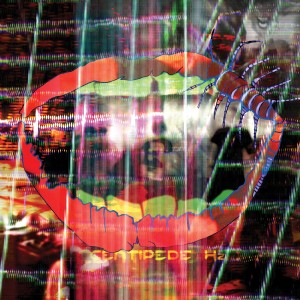
37.
Animal Collective
Centipede Hz
[Domino]
So, in a weird twist of fate, 2012 ended up being the year where Animal Collective finally stopped being hip. Maybe that was inevitable, what with the pressure to follow up Merriweather Post Pavilion with a record that would strike a chord with the same wide set of people, but, if there’s anything you can’t change about Animal Collective, it’s their propensity to change. Much of the critical discussion surrounding Centipede Hz focused on its ultra-maximalist production style, which packs more bleeps, bloops, and obtuse noise into every moment than is able to be fully processed on one, two, or ten listens. But this often distracted away from the fact that Hz contains some of AnCo’s most impressive and complex songwriting – songs like “Applesauce” and “Today’s Supernatural” meander through a multitude of sections and feature some of the most immediate hooks of the band’s career. Elsewhere, enormous, adventurous productions like “Monkey Riches” and “New Town Burnout” are so saturated with colors and directions that it takes time to find something to grab onto in the mess of sound. Make no mistake – by all accounts, Centipede Hz is a more abstract, more convoluted, and, above all else, more difficult record than its predecessor. But it’s every bit as accomplished.
– Ryan Stanley

36.
Jessie Ware
Devotion
[Universal Island / PMR]
For reasons beyond my intuitive or technical understanding of music (the latter of which, let’s be serious, is quite limited), I’ve sought comfort in Jessie Ware’s Devotion perhaps more than any other album this year. And not the “someone hug me” sort of comfort, either. There’s something especially compelling about this album.
Jessie Ware doesn’t seem to have the most brow-raising voice, but maybe that’s just it. She “doesn’t seem” to be as vocally gifted as she is. She practices self-restraint in a way that only a singer with a constant vocal charisma can. She makes just as deep an impression on the relatively tame (and objectively phenomenal) “Wildest Moments” as she does when she lets loose on “Taking In Water,” where she builds up tension with a near-whisper before quickly exploding into lines like “If you want to escape, you don’t need to/ Just look for me.”
And as its title may imply, Devotion bears a certain intensity. Tracks like “Night Light” or “Running” might look sweet and harmless on paper, but there’s an electronic/hip-hop element fused in that, paired with Ware’s vocal R&B omnipower, makes for a seriously badass product. These are love songs that you can also slide on shades and snarl to.
– Weston Fleming

35.
Bat For Lashes
The Haunted Man
[Parlophone]
The Haunted Man stems from one question, which Natasha Khan asked Thom Yorke: “What do you do when you feel like you’re going to die because you can’t write anything?” Khan found an answer through other mediums (drawing and dance classes), and the end result is arguably her best album to date. In a way it’s no surprise that she encountered writer’s block, as her previous album Two Suns was a vast, split personality-led, Scott Walker-featuring chasm of intrigue and wonder. The Haunted Man is Bat For Lashes built once again from the ground up. Sometimes all that is needed is the simple foundations, such as the devastatingly beautiful “Laura” where Khan almost pleads to the main character that “you’re more than a superstar” as minor-key piano chords and some gentle horns swell lightly in the background. Elsewhere she constructs worlds carefully to deliver their best effect, such as the tension hiding in the guitar riff on “All Your Gold,” or the Gregorian choir on the title track. But the album is a naked self-portrait more than anything else, and Khan lays her soul bare, like she does her body on the album’s artwork. “Thank God I’m alive,” she sings with the relief a solider does coming from the trenches on opening track “Lilies”; her journey to get where she is has been a treacherous one, where she lost hope and meaning, but the end result shows that she not only found it but also that she’s embracing it tighter than ever.
– Ray Finlayson
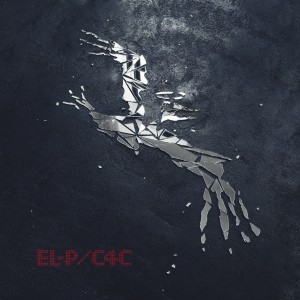
34.
El-P
Cancer for Cure
[Fat Possum]
It should come as no surprise to anyone who’s familiar with his previous work that El-P’s latest album Cancer For Cure would press forward into some futurist’s idea of how rap and electronic music in 2012 should have sounded. Combining a kitchen sink approach with a razor sharp ability for complex beat construction, Cancer For Cure stands as possibly the high water mark of his career. And while some may cry foul in regard to that statement and hold Fantastic Damage up as his best, Cancer For Cure feels so much more self-assured and musically intrepid that the arguments, while not without a certain amount of merit, are not as clear cut as you might think.
Some producers and rappers are content to add extraneous blips and baps to fairly dull beats, but El-P has crafted free-flowing, amorphous beats which contract and expand, incorporating and absorbing all the musical ephemera that he can throw at them. Whether it’s the spirit of The Chemical Brothers that hovers over opening banger “Request Denied,” the eccentric flows of Danny Brown and Mr. Muthafuckin’ eXquire on album highlight “Oh Hail No,” or the space-age production on “The Full Retard,” Cancer For Cure plays out like a time-capsule compendium of inspired production choices and aesthetic diversity designed to separate your frontal lobe from your skull. On “The Jig Is Up,” El-P cops Groucho Marks’ famous line about not wanting to belong to any club that would have him as a member. But with Cancer for Cure now on his resume, I’d say that it’s far more likely that no club has yet earned him as a member.
– Joshua Pickard

33.
The xx
Coexist
[Young Turks]
Coexist is the sound of going further down the rabbit hole. The xx had dozens of directions in which they could have stretched in the interim between xx and Coexist, given the changes to their line up, given Jamie xx’s birth as remix-producer du jour, given the sheer amount of time that had passed between the two records. Instead, the band turned insular, finding even more beauty in the space and silence they mined on their debut.
Coexist isn’t as revelatory as xx, nor is it as deeply personal, but it may be more honest. There was a theatricality to xx that would have been a chore to maintain; Coexist replaces it with extended simplicity. There was a posturing to xx that Coexist replaces with even deeper attention to sonic nuance. Three years is long enough for teenagers to become young adults. Where xx was successful rendering the tension of a breakup in plain sight, Coexist deepens the sound of their debut record in the service of just that: coexisting.
– Chris Bosman

32.
Japandroids
Celebration Rock
[Polyvinyl]
People calling Japandroids ‘high school rock’ are the same people who are trying to forget everything about their high school experiences, and they’re necessarily forgetting the power of being a teenager. It’s teenagers who have always held the power in music, from Ed Sullivan to Justin Bieber, and Celebration Rock‘s ability to tap into the frustration, rage, sentiment, joy, and naiveity of youth is a strength, not a detriment.
Consider, too, how Celebration Rock is aware of its own perspectives; it’s not ignorant of its own childishness. Instead, it embraces it, and offers perspective and complexity only available in distance. It’s no mistake that “Younger Us” is only recalling “that night you were already in bed/ Said ‘Fuck it’ and got up to drink with me instead,” just as it’s no accident that “The House That Heaven Built” is both furious with self-import (“Tell them all they’ll love in my shadow”) and achingly acceptant (“If they try to slow you down/ Tell ’em all to go to hell.” Celebration Rock and its music form a snake eating its own tail: its title aptly describes the music contained within, and the music of Celebration Rock fights like hell to earn its name. It’s that circular logic that gives this album its deceptive depth.
– Chris Bosman
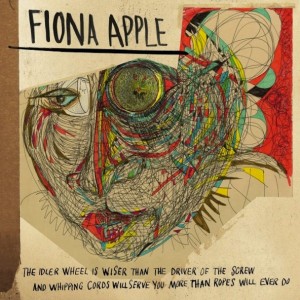
31.
Fiona Apple
The Idler Wheel…
[Epic]
2012 saw a lot of retrospectives on the career of Fiona Apple, from those of us who grew up along with her, who wished we too were on the MTV VMAs as much as we wished we too could eviscerate the MTV VMAs. But it’s important to remember that success was not preordained to the anxious intensity of The Idler Wheel…, especially given the general opinion that Fiona no longer understood her own strengths when she scrapped Jon Brion’s take on her last record, Extraordinary Machine.
That success still feels preordained, however, because on the surface The Idler Wheel… doesn’t feel too terribly different from previous Fiona records. That fact can make it criminally easy to overlook The Idler Wheel‘s consistent excellence, its skillful rendering of frantic uncertainty during early adulthood (or maybe elongated adolescence?), its defiant confidence in its own fractured identity. But make no mistake, The Idler Wheel… is no case of Manifest Destiny. It succeeds not because it must, but because Apple knows no other way to make a record except successfully.
– Chris Bosman


